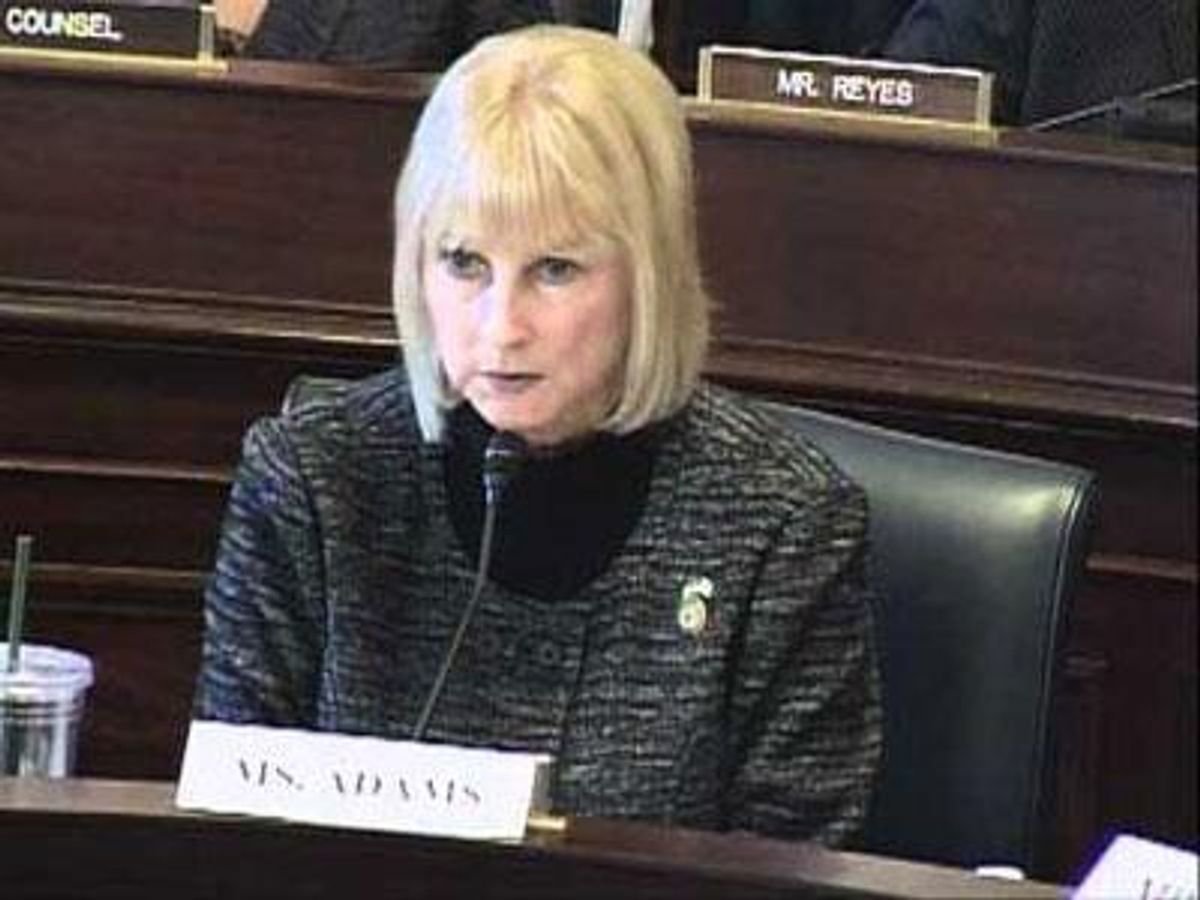The day after the Senate approved the reauthorization of the Violence Against Women Act with LGBT-inclusive provisions, members of the Republican-controlled House introduced their own version of the bill, which excludes coverage for LGBT citizens.
Florida representative Sandy Adams introduced the noninclusive bill Friday with 35 cosponsors. Adams has a 17-year history of work in law enforcement and had an abusive husband, whom she eventually left.
"Over 30 years ago, domestic violence was not openly discussed," she said in
introducing the bill. "Since 1994, VAWA has helped bring to light an issue that is often underreported or not reported at all. According to a recent study, 24 people per minute are victims of rape, physical violence, or stalking by an intimate partner in the United States. With alarming statistics like these, the need for VAWA is clear. That is why I am proud to introduce the House's reauthorization, which aims to make important changes to VAWA, while ensuring that taxpayer resources help victims -- not Washington bureaucrats. It is my hope that my colleagues in both the House and Senate can put politics aside and support this lifesaving legislation. Too many lives are at stake for us to give anything less."
The law organizes federal funding to enhance investigation and prosecution of domestic violence and sexual assault while also supporting victim service programs. The Senate version,
which was passed Thursday, was the first to have LGBT-inclusive provisions. Senators defeated an amendment, with a 36-63 vote, that would have rewritten the bill and excluded coverage for LGBT violence victims.
According to Sharon Stapel of the Anti-Violence Project, 25%-35% of same-sex relationships are marred by domestic violence and abuse, which is about the same rate as other relationships. However, LGBT domestic violence victims have fewer supportive services, and they often face discrimination when seeking help. The Senate bill would ensure that all people are able to access services regardless of their actual or perceived sexual orientation or gender identity.


















































































Here's our dream all-queer cast for 'The White Lotus' season 4